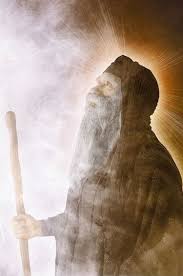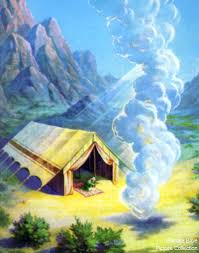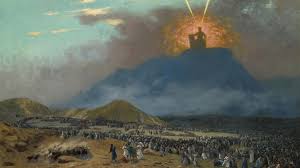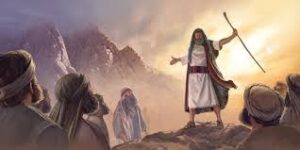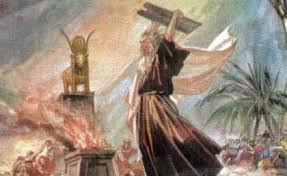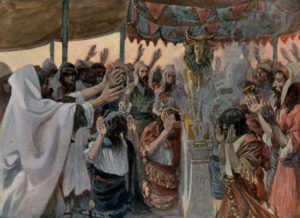Hg – So the Tabernacle was Set Up on the First Day of the First Month 40: 17-33
So the Tabernacle was Set Up
on the First Day of the First Month
40: 17-33
So the Tabernacle was set up on the first day of the month DIG: Why do you think ADONAI wanted the Tabernacle built in the first place? How would focusing their attention help His people to understand Him and to communicate with Him? What is the danger of limiting the LORD to merely the Tabernacle or its furnishings? How does God seek to avoid this danger? How does this passage illustrate His desire for obedient worship?
REFLECT: Accepting that you are a sinner and can never be perfect, have you dedicated yourself to God or are you merely interested? In a breakfast of eggs and ham, the chicken was interested but the pig was dedicated. Which one are you? Before accepting Jesus Christ we were brute beasts, unable to keep from sinning (Second Peter 2:12; Romans 7:18-19). But now we have a choice. What are you choosing?
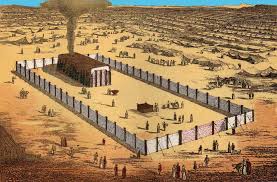
So the Tabernacle was set up on the first day of the first month in the second year since the Israelites arrived at the foot of Mount Sinai. These verses record the careful setting up of the Tabernacle in response to the LORD’s command. When Moses set up the Tabernacle, he put the bases in place, erected the frames, inserted the crossbars and set up the poses. Then he spread the tent over the Sanctuary and put the covering over the tent, as ADONAI commanded him (40:17-19).
He took the Ten Commandments on the two tables of stone and placed them in the ark of the Covenant, attached the poles to the ark and put the mercy seat over it. Then he brought the ark of the Covenant into the Most Holy Place and hung the inner veil, as ADONAI commanded him (40:20-21).
Moses placed the table of the bread of the Presence in the Sanctuary on the north side of the Tabernacle outside the inner veil, and set out the bread on it before the LORD, as ADONAI commanded him (40:22-23).
He placed the golden lampstand in the Sanctuary opposite the table on the south side of the Tabernacle, and set up the lamps before the LORD, as ADONAI commanded him (40:24-25).
Moses placed the gold altar of incense in the Sanctuary in front of the inner veil, and burned fragrant incense on it, as ADONAI commanded him. Then he put up the outer veil at the entrance to the Tabernacle (40:26-28).
He set the bronze altar near the entrance to the Tabernacle, and offered on it burnt offerings and grain offerings, as ADONAI commanded him (40:29).
He placed the bronze basin between the Sanctuary and the bronze altar and put water in it for washing, and Moses and Aaron and his sons used it to wash their hands and feet. They washed whenever they entered the Sanctuary or approached the gold altar of incense, as ADONAI commanded Moses.
Then Moses set up the courtyard around the Tabernacle and the bronze altar and put up the gate to the courtyard. And so Moses fulfilled the command that God had given him (40:29-33a). That point is underscored in this section with the recurrence of the summary: as ADONAI commanded Moses. This phrase appears seven times in this section. Those seven subsections of the setting up of the Tabernacle may point, once more, to the creation account. Also, the very last line, where Moses finished his work is a reminder of Genesis 2:1 where God finished the work of creation that He had been doing.





